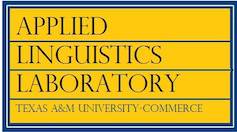Review: Austin, Jennifer, Blume, María, & Sánchez, Liliana (2015). Bilingualism in the Spanish-speaking world: Linguistic and cognitive perspectives. Cambridge, United Kingdom: Cambridge University Press.
DOI:
https://doi.org/10.21283/2376905X.3.61Keywords:
SPANISH BILINGUALISM, SPANISH-ENGLISH, SPANISH-EUSKARA, SPANISH-QUECHUA, BILINGUAL OUTCOMES, NEUROLINGUISTICS, COGNITIVE LINGUISTICSAbstract
The book reviewed here may serve as an excellent resource for advanced undergraduate students of linguistics, as well as graduates and scholars in the field and related disciplines. It comprises five chapters that explore, through three Spanish bilingual communities, the following topics: basic concepts in bilingualism, such as code-switching and language transfer; a brief historical review of Spanish bilingualism; proposed definitions of bilingualism and the different ways in which bilinguals may be classified according to factors such as language competence and age of acquisition; the effect of bilingualism on the brains and minds of bilingual speakers, such as increased cortical activation and enhanced literacy; and, finally, the development and outcomes of bilingualism on the linguistic representations of bilingual speakers. The authors cover a breadth of research, rendering it accessible by succinctly reviewing findings, and further identify areas for future research.
Downloads
Published
How to Cite
License
Copyright (c) 2015 Maria I. Fionda

This work is licensed under a Creative Commons Attribution 4.0 International License.


